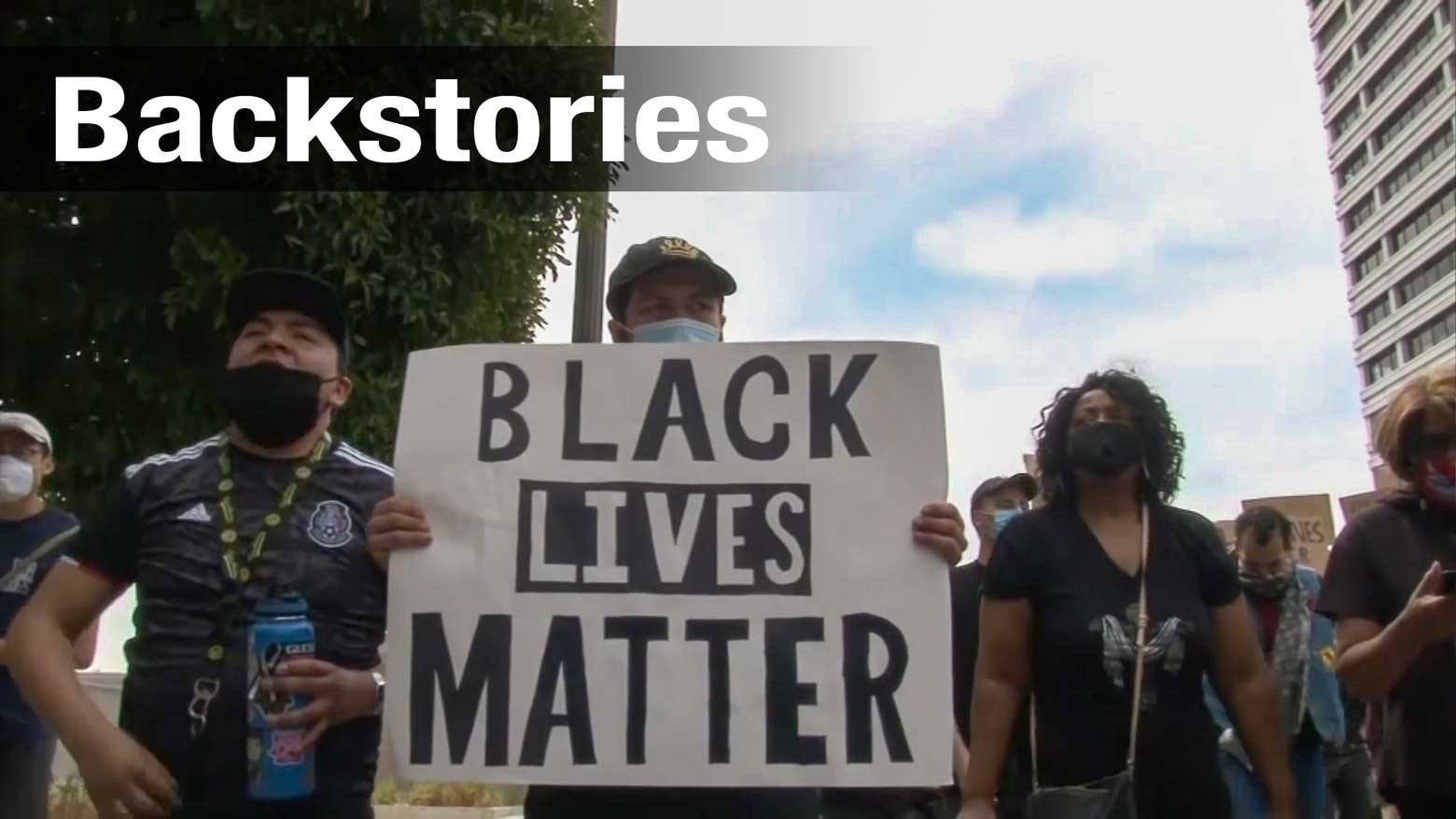The final moments of George Floyd's life were captured on camera. A video, which quickly went viral, shows three police officers pinning him to the ground. One of them is kneeling on his neck, even as he begs for his life and calls out for his mother.
Many say the video's graphic nature is what triggered the wave of protests currently sweeping the US, and that its ubiquitous presence on social media made it impossible for people to ignore. But activists have been quick to point out that police brutality is only one of the ways in which racism manifests itself in American society.
Danna Kiel, a Black mother who has taken part in protests in Los Angeles, says that while the murders of Floyd, Ahmaud Arbery, and Breonna Taylor have been the catalysts for the recent surge of nationwide activity, demonstrators are also fighting against other forms of inequality, such as racial disparities in healthcare. She points to the disproportionately high coronavirus death toll among the Black population as a result of the country's endemic racism.
"I'm sure that as African Americans in this country, we are not eating any more cakes and cookies than anybody else in this country," she says. "But the structures that would care for us, that would take care of us as people, are discriminatory as well."
Statistics from the CDC support Kiel's assertion. The agency reports that Black people account for 33% of coronavirus hospitalizations despite making up only 18% of the communities studied. The CDC says a range of factors, including residential area segregation—which has forced many Black Americans to live in overcrowded areas—and biases in healthcare, are contributing to this troubling trend.
Dr. Gabrielle Gray, a member of the National Conference of Black Political Scientists who has studied social movements and police violence, said the recent protests are the result of a number of factors coming to a head.
"With the death of George Floyd, you not only have a clear visualization of the last moments of his life, and the lack of humanity shown towards him, but then you also have to add on COVID," she said. "Folks have really been feeling the pain in terms of the racial inequalities that exist in America, the income and wealth gaps that exist in America, the lack of access to fair and equitable healthcare in America."
(Watch video 3:07)
Similar experiences of systemic racism and police brutality have driven Latinos, Asians, and other minorities to also join the protests, says Carlos Marroquin, an LA resident who has participated in several demonstrations.
"Latinos have suffered at the hands of the police as well," he says. "Any minority community here in Los Angeles living in a state of oppression, whether it be through police brutality, whether it be to poverty, whether it be to homelessness—the most affected are always people of color."
He adds, "The only way we're going to win is when we all come together."
In particular, calls to defund the police have gained significant traction amid the protests. Gray, of the National Conference of Black Political Scientists, says this demand is the result of previous failed attempts at police reform, which has convinced activists that radical overhaul is the only way forward.
"The history of law enforcement in America is rooted in racism," she says. "We see that going back to the slave catchers. And so we have to change the system in order for there to be any type of fairness. And so what does that look like? That looks like defunding the police and putting it toward actual community resources."
The protests are already having an effect in Los Angeles where Mayor Eric Garcetti has pledged to cut $150 million from the police budget (which represents less than 5% of the department's $3.1 billion in total funding). But his announcement has done little to slow down demonstrations, with organizers saying it is merely the first step.
"It's moving the needle a little bit," says Colleen Barry, a protester. "It's not enough, but it's something. I think this is a long haul and that's a starting point."
Barry, who is white, says she joined the protests because she felt she had to speak up against the discrimination she constantly witnesses around her. Earlier this year, her friend Zoe Rana Mungin, contracted COVID-19 and later died. Barry says the systemic racism of the healthcare system prevented her friend from receiving potentially life-saving care.
"Zoe had asthma so when she started to show symptoms, she went to the hospital but was denied care and not given a test. She went a second time and was again denied care and not given a test. And by the third time she went, she was put in a coma and was on a ventilator for a month. I just think about me walking into the hospital and saying, I have asthma, I have symptoms of coronavirus. I would get treatment. And it didn't work that way for Zoe."

